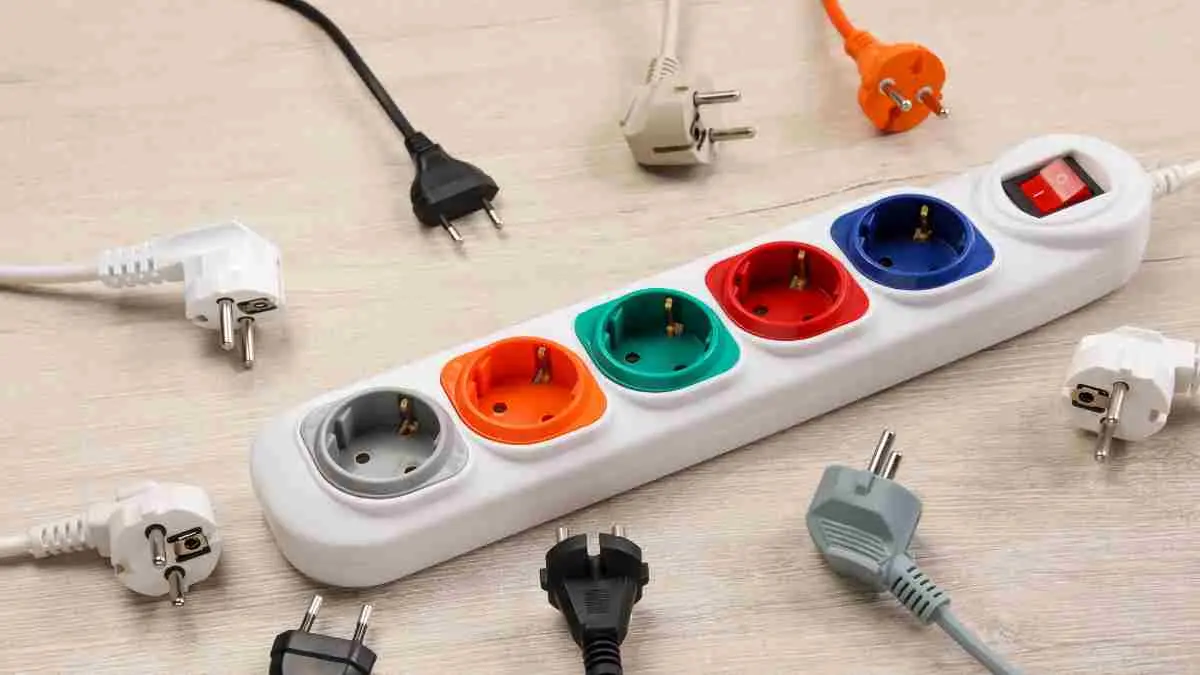Imagine this scenario: You’ve just moved into your new home and are eagerly unpacking. As you step into the kitchen, you search for the perfect spot to place your oven, only to discover a dilemma. There’s just a single wall outlet in the entire kitchen—and it’s not even close to where you’d like to position your appliance.
You might be tempted to grab an extension cord to solve this problem, but it’s crucial to reconsider this option. Here are a few reasons why you should never do that.
Extension cords and safety
According to experts, many people lack a proper understanding of how to use extension cords safely. Bear in mind that extension cords are 14-gauge, and you may want to run an appliance with a heating element, like an oven, dishwasher, or microwave. Then, a 14-gauge will not hold the amperage and can burn up the extension cord. And that’s what causes fires in many houses in the USA.
The 14-gauge and 12-gauge extension cords are among the most common types available. A 14-gauge cord can handle approximately up to 1,800 watts (or 15 amps), which is equivalent to a standard wall outlet in the US. However, experts emphasizes that appliances using more than 1,500 watts should always be plugged into a dedicated circuit.
- 14-gauge extension cords: Can handle up to 1,800 watts or 15 amps.
- 12-gauge extension cords: Offer greater capacity, suitable for heavier loads.
Being informed about the limitations of extension cords can help prevent potential fire hazards in your home. Always ensure that your high-wattage appliances are connected safely and appropriately.
High-Risk Appliances to Avoid Connecting to Extension Cords
When it comes to powering certain appliances in your home, it’s crucial to heed the advice: “No extension cords at all.” This directive is not just about maintaining efficiency but also ensuring safety. Let’s delve into some appliances that pose a high risk when connected to an extension cord.
Air Fryers
In the quest to simplify our lives, from advanced talking fridges to the latest iPhones, our experts are here to guide you in navigating modern conveniences. Air fryers have become a kitchen staple for their ability to quickly cook and reheat meals, from full dinners to simple side dishes.
However, using an extension cord with your air fryer can be hazardous. Due to their high wattage, often reaching up to 2,000 watts for larger models, they pose a significant fire risk when not plugged directly into a wall outlet. If counter space is limited, consider storing your air fryer away and only plugging it directly into a dedicated outlet as needed.
Expert Advice for a Safer Home
Our team of experts is dedicated to helping you make informed decisions, ensuring that your home is both efficient and safe. Whether you’re dealing with innovative kitchen gadgets or the latest in smart technology, understanding the risks associated with improperly powering your devices is key. Always prioritize direct wall outlets for high-wattage appliances to prevent potential hazards.
Microwave
While many dream of moving into a home equipped with a built-in microwave, not everyone is that fortunate. If you’re tasked with finding a spot for your microwave in the kitchen, remember that this is a heavy-duty appliance. Due to its high wattage, it should ideally be connected to its own dedicated circuit.
Refrigerator
Even though refrigerators consume less wattage compared to some other kitchen appliances, they are continuously running. This makes them unsuitable for use with an extension cord. Using an extension cord might not immediately lead to a fire hazard, but it can potentially cause the refrigerator to malfunction.
Toaster and Toaster Oven
Despite their small size, toasters are energy-intensive and can be a fire risk if plugged into an extension cord. Toaster ovens require even more power, with wattage ranging from 1,200 to 1,400 watts. These appliances need adequate power to function safely and efficiently.
Extension Cords: A Hidden Hazard
In the world of electricians, there’s a golden rule: never plug extension cords into one another. This practice, known as “daisy chaining,” is a significant safety hazard. Engaging in this risky behavior can cause the circuit to overheat, leading to potential overheating of the cords themselves.
Space Heaters: A Common Fire Risk
Electric heaters, particularly portable space heaters, have long been notorious for their fire risk. According to the Consumer Product Safety Commission, between 2017 and 2019, these devices were involved in an alarming 1,700 fires annually. Tragically, some of these incidents resulted in fatalities.
Consider this scenario: Someone connects an extension cord to a floor heater the plug could melt, starting a fire. This is precisely why extension cords and power strips should never be used with appliances; they are intended for electronics only.




